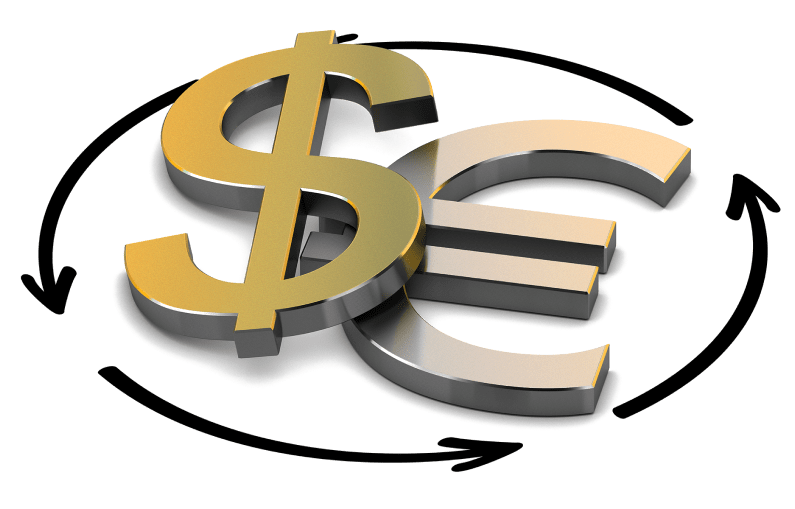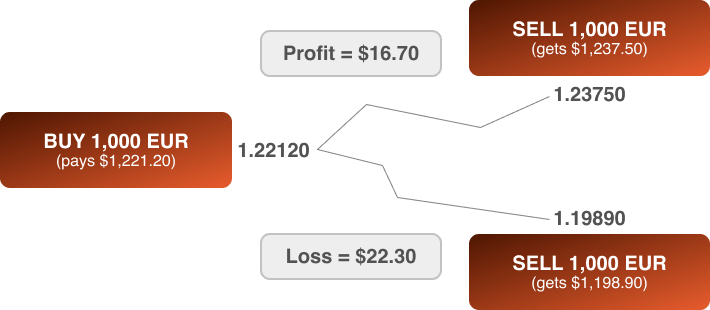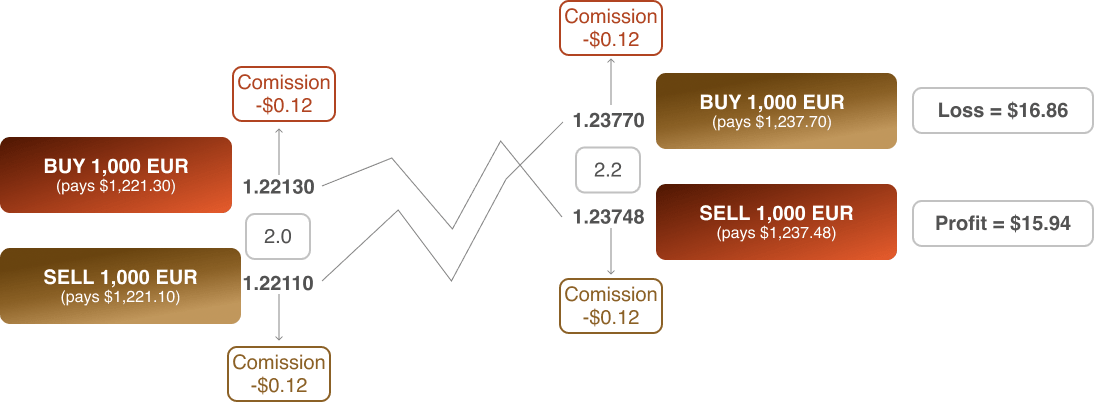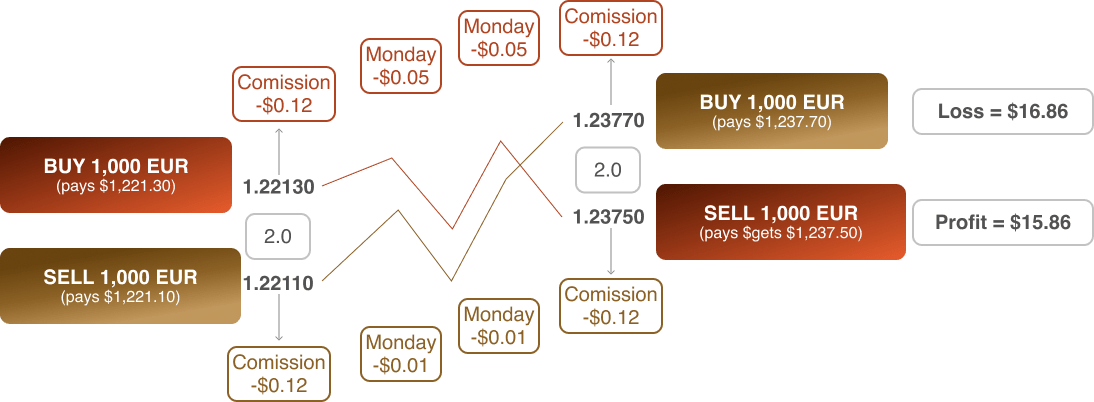TRADE EUR/USD


The US dollar is the most traded currency in the world, and the euro is the second. Not surprisingly, EUR/USD is the most traded currency pair in the world. The two currencies that form this trading pair represent two of the world’s largest economies and markets.
Euro
After decades of discussion and years of planning, the euro became a reality on the 1st of January 1999. The euro is a currency used by nineteen countries in the European Union.
US dollar
The US dollar came to existence in 1792, shortly after the American Revolutionary War ended. Following a series of significant geopolitical shifts, such as WWII, the USD became the world’s leading currency.F
Wenn Sie mit EUR/USD handeln, beträgt das Basisvermögen Euro und das Quotierungsvermögen Dollar. Die Vertragsgröße, oft als Losgröße bezeichnet, beträgt 100.000 Euro. Die kleinste Bestellgröße, die aufgegeben werden kann, beträgt 1.000 Euro, auch als Micro-Lot oder 0,01 Lot bezeichnet. Order können nur in Schritten von 1.000 platziert werden, was bedeutet, dass die zweitkleinste Bestellgröße, die aufgegeben werden kann, 2.000 beträgt.
EUR/USD wird mit fünf Stellen (nach dem Komma) angegeben. Die vierte Stelle ist als Pip bekannt, und die fünfte Stelle ist als Point bekannt. Der Wert eines Pip hängt von der Größe des Vertrags ab. Wenn der Vertrag 1 Lot umfasst, beträgt der Pip-Wert 10 USD. Wenn die Vertragsgröße 0,01 Lot wäre, wäre der Pip-Wert 0,10 USD.
Einer der Vorteile des CFD-Handels besteht darin, dass Sie mit Hebeleffekten handeln können, wodurch weniger Geld für die Eröffnung eines Handels benötigt wird. Captainmarkets bietet einen Hebel von bis zu 1:30 für den Handel mit EUR/USD, was bedeutet, dass Sie nur eine Marge von 3,33% bereitstellen müssen, um eine Position zu eröffnen.
Hebelwirkung ist ein wichtiges Instrument für den Handel mit Forex-CFDs, da kleine Preisbewegungen einen größeren Einfluss auf größere Positionen haben. Vergessen Sie jedoch nicht, wenn sich der Preis gegen Ihre Position bewegt, sind die Verluste umso größer, je größer die Position ist.
- Base asset: Euros
- Quote asset: US dollars
- Contract size (Lot size): 100,000 EUR (1 Lot)
- Min. trade size: 1,000 EUR (0.01 Lots)
- Max. trade size: 10,000,000 EUR (100 Lots)
- Pip position: 0.00010
- Maximum leverage (margin): 1:30 (3.33%)
- Euros and dollars are always in demand which causes the rate to move often. Both economies are home to the largest banks, financial institutions, securities markets and multinational corporations in the world.
- Because inflation is low and economic growth is fairly stable in the EU and the USA, these circumstances make the EUR/USD pair a compelling instrument for traders.
- Because of the huge demand for euros and dollars, you can usually find the EUR/USD trading pair offers the tightest spreads out of all major currency pairs.
When you go long on EUR/USD, you’re theoretically buying euros with dollars. When you close the trade, your profit or loss will be calculated in dollars. If the euro strengthened against the dollar, you’d get more dollars when you close the transaction. If the euro weakened, you’ll get back fewer dollars.

With leverage, you’re able to open larger positions than your capital would otherwise permit. When you trade forex CFDs with Captainmarkets, you can use leverage as high as 1:30; meaning you only need to provide margin to cover 3.33% of the position’s value.

When you trade forex CFDs, you don’t need to own either of the currencies included in the pair. For example, if your trading account balance is denominated in British pounds, you can still trade EUR/USD. The purpose of a CFD is to enable traders to speculate on the price of one currency against another. When a CFD is concluded, it will always be settled in cash, i.e. by increasing or decreasing the amount of balance in your trading account.


Costs to trade EUR/USD
There are different costs involved when trading CFDs with Captainmarkets. There are three primary factors which influence how much you pay for your transactions; they are:
- The size of your trade, the bigger the trade, the higher the fees.
- The instrument you’re trading, as different products have different characteristics.
- The type of account you have, as different accounts have different conditions.
Costs related to trading CFDs
The different costs to be aware of when trading forex CFDs are spreads, commissions and swaps.
Spread
The spread is the difference between the bid and offer price. When you enter a long trade, your order is opened using the Ask-price, which is the higher of the two quotes. When the long trade is closed, the Bid-price, which is the lower of the two quotes.

Commission
Commissions are charged when you open and close a trade. In this example, the commission charged is €10 per Lot. Once adjusted according to the trade size of 0.01 Lots the commission becomes €0.10. When converted to dollars, it becomes $0.12.

Swap
A swap is a fee for holding positions overnight. The price is derived from the base and quote currency’s interest rate differential and varies depending on whether your position is long or short. In this example, the swap rate for a long EUR/USD position is 5 Pips, and the rate for a short position is 1 Pip.





